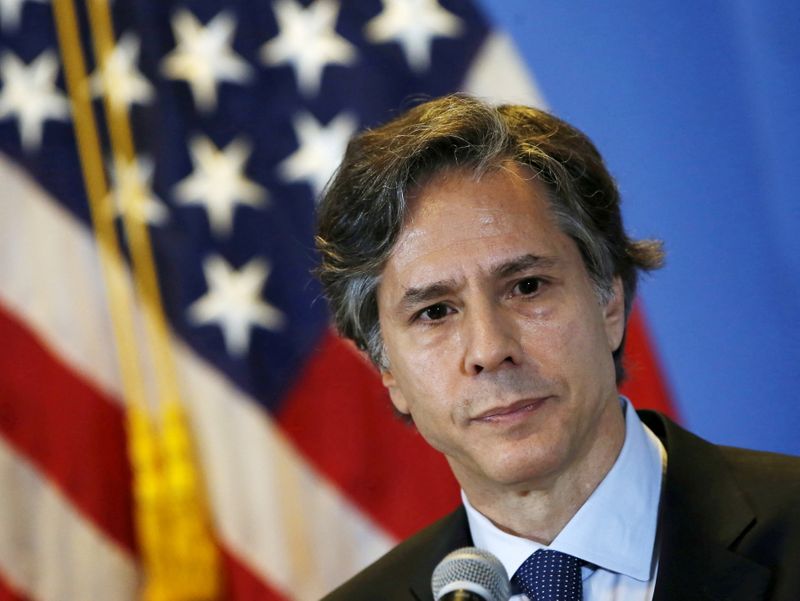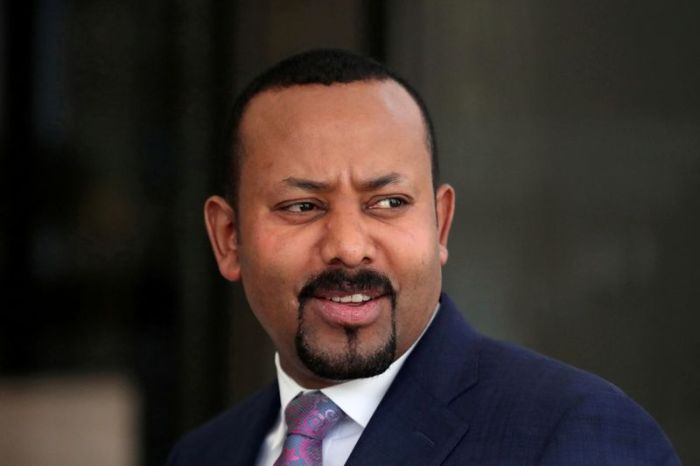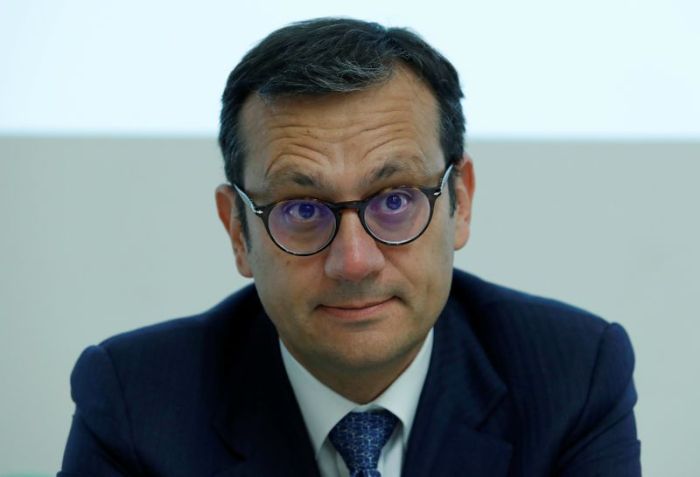NEW YORK/WILMINGTON, Del. (Reuters) – Joe Biden will pick Antony Blinken as U.S. secretary of state, a person close to the president-elect’s transition said on Sunday, elevating one of his most seasoned and trusted aides as he prepares to undo President Donald Trump’s foreign policy.
Blinken is a longtime Biden confidant who served as No. 2 at the State Department and as deputy national security adviser in President Barack Obama’s administration, in which Biden served as vice president.
A second Biden ally said that Blinken was Biden’s first choice. An announcement is likely on Tuesday.
Blinken’s appointment makes another longtime Biden aide with a foreign policy background, Jake Sullivan, the top candidate to be U.S. national security adviser, the first source said. Bloomberg News first reported the expected roles.
Biden’s transition team declined to comment. Neither Blinken nor Sullivan responded to requests for comment.
While neither are household names, Blinken and Sullivan have helped Biden formulate a strategy that will include immediate outreach to U.S. allies who have often been antagonized by Trump’s “America First” approach, and to demonstrate a willingness to work together on major global problems like the coronavirus epidemic and its economic fallout.
Biden has vowed to rejoin a nuclear deal with Iran if the country returns to compliance, return to the Paris climate accord, abandon plans to leave the World Health Organization and end a U.S. rule that bans funding of aid groups that discuss abortion. Each move would reverse Trump’s policies and some could take place quickly after Biden takes office on Jan. 20.
Biden is also likely to name Linda Thomas-Greenfield as U.S. ambassador to the United Nations, media outlets reported on Sunday. Thomas-Greenfield is Black, an expert on Africa policy and held a top diplomatic post in the administration of former President Barack Obama.
‘DIPLOMAT’S DIPLOMAT’
Blinken, 58, has long touted the view that the United States needs to take an active leadership role in the world, engaging with allies, or see that role filled by countries like China with contrary interests.
“As much of a burden as it sometimes seems to play … the alternative in terms of our interests and the lives of Americans are much worse,” he said in an interview with Reuters in October.
When asked if relations with the United States might improve with Blinken replacing Mike Pompeo, Chinese Foreign Ministry spokesman Zhao Lijian sidestepped the question by saying he does not comment on U.S. domestic affairs.
He reiterated that China was willing to improve communication, strengthen cooperation and manage differences with the United States.
People familiar with his management style describe Blinken as a “diplomat’s diplomat,” deliberative and relatively soft-spoken, but well-versed in the nuts and bolts of foreign policy.
After Democratic presidential nominee Hillary Clinton lost the 2016 election to Trump, Blinken became one of the founders of WestExec Advisors, a Washington consultancy advising corporations on geopolitical risks.
Having practiced law briefly, he entered politics in the late 1980s helping Democrat Michael Dukakis’ presidential campaign raise money.
He joined Democratic President Bill Clinton’s White House as a speechwriter and became one of his national security aides.
Under Obama, Blinken worked to limit most U.S. combat deployments to small numbers of troops. But he told Reuters last year that Trump had “gutted American credibility” with his pullback of U.S. troops in Syria in 2019 that left Kurdish U.S. allies in the lurch in their fight against Islamic State.
On the campaign trail, Blinken was one of Biden’s closest advisers, even on issues that went beyond foreign policy.
That trust is the product of the years Blinken worked alongside Biden as an adviser to his unsuccessful 2008 presidential campaign, as national security adviser early in his vice presidency and as the Democratic staff director of the Senate Foreign Relations Committee when Biden was chair.
Sullivan, formerly a close policy aide to Hillary Clinton, became one of the key policy advisers to Biden. He served as the former vice president’s national security adviser during the Obama administration.
A 43-year-old graduate of Yale, who was also a Rhodes scholar at Oxford and has a reputation as a behind-the-scenes operator, Sullivan took part in secret back channel talks with Iran that led to a 2015 international nuclear deal that Trump subsequently overturned.
He took on a broad portfolio on foreign and domestic policy, including the campaign’s views on the public health and economic response to the coronavirus pandemic, and was quickly chosen to stay on with Biden through the transition.
(Reporting by Matt Spetalnick in New York, Trevor Hunnicutt in Wilmington, Delaware, and David Brunnstrom in Washington; Additional reporting by Yew Lun Tian in Beijing; Editing by Diane Craft, Raju Gopalakrishnan and Toby Chopra)
























